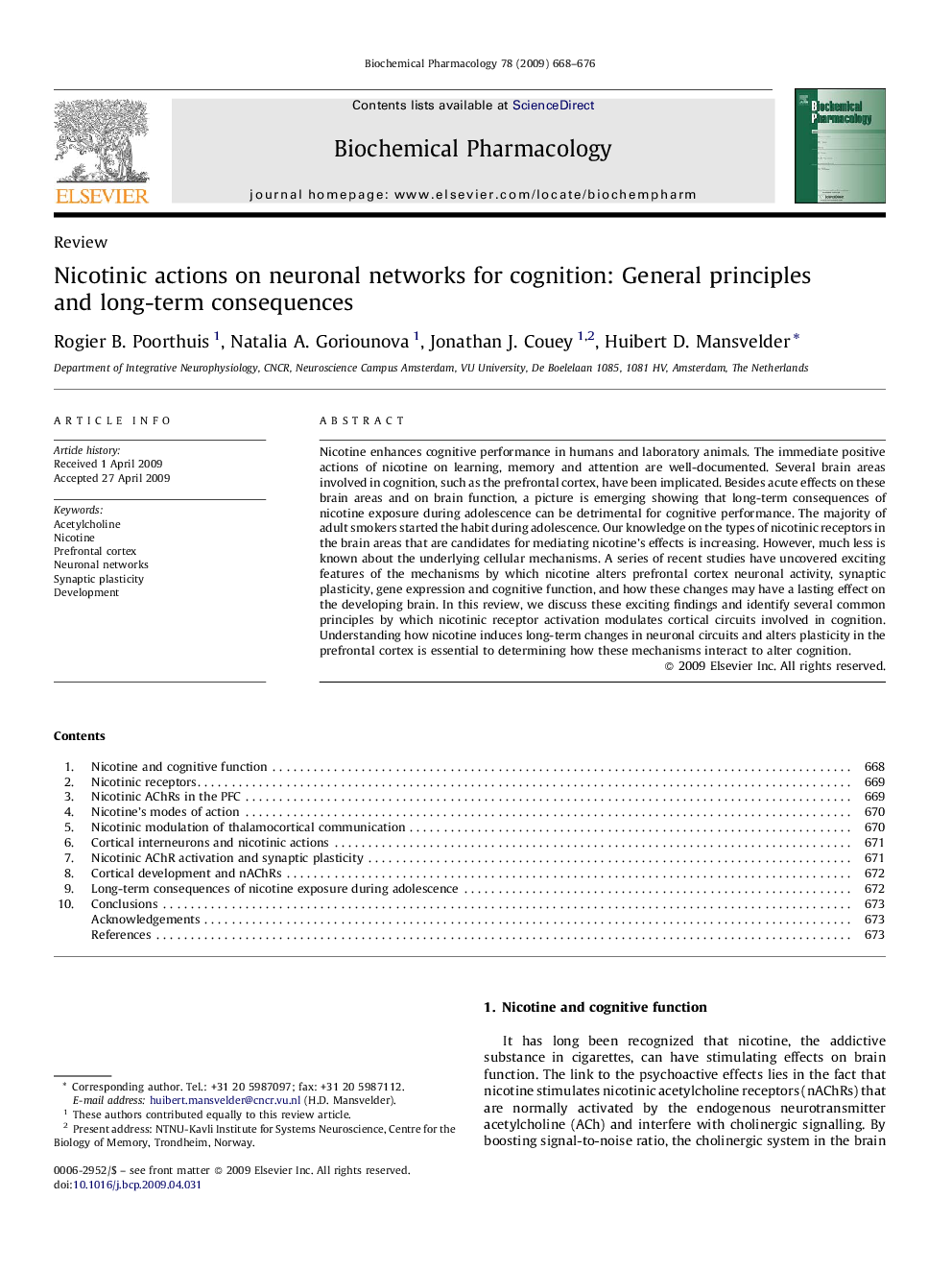| Article ID | Journal | Published Year | Pages | File Type |
|---|---|---|---|---|
| 2513848 | Biochemical Pharmacology | 2009 | 9 Pages |
Nicotine enhances cognitive performance in humans and laboratory animals. The immediate positive actions of nicotine on learning, memory and attention are well-documented. Several brain areas involved in cognition, such as the prefrontal cortex, have been implicated. Besides acute effects on these brain areas and on brain function, a picture is emerging showing that long-term consequences of nicotine exposure during adolescence can be detrimental for cognitive performance. The majority of adult smokers started the habit during adolescence. Our knowledge on the types of nicotinic receptors in the brain areas that are candidates for mediating nicotine's effects is increasing. However, much less is known about the underlying cellular mechanisms. A series of recent studies have uncovered exciting features of the mechanisms by which nicotine alters prefrontal cortex neuronal activity, synaptic plasticity, gene expression and cognitive function, and how these changes may have a lasting effect on the developing brain. In this review, we discuss these exciting findings and identify several common principles by which nicotinic receptor activation modulates cortical circuits involved in cognition. Understanding how nicotine induces long-term changes in neuronal circuits and alters plasticity in the prefrontal cortex is essential to determining how these mechanisms interact to alter cognition.
Graphical abstractDistributed nicotinic receptor expression by interneurons and pyramidal neurons in the neuronal circuitry of the prefrontal cortex exert stimulating actions on cognitive behaviour.Figure optionsDownload full-size imageDownload as PowerPoint slide
